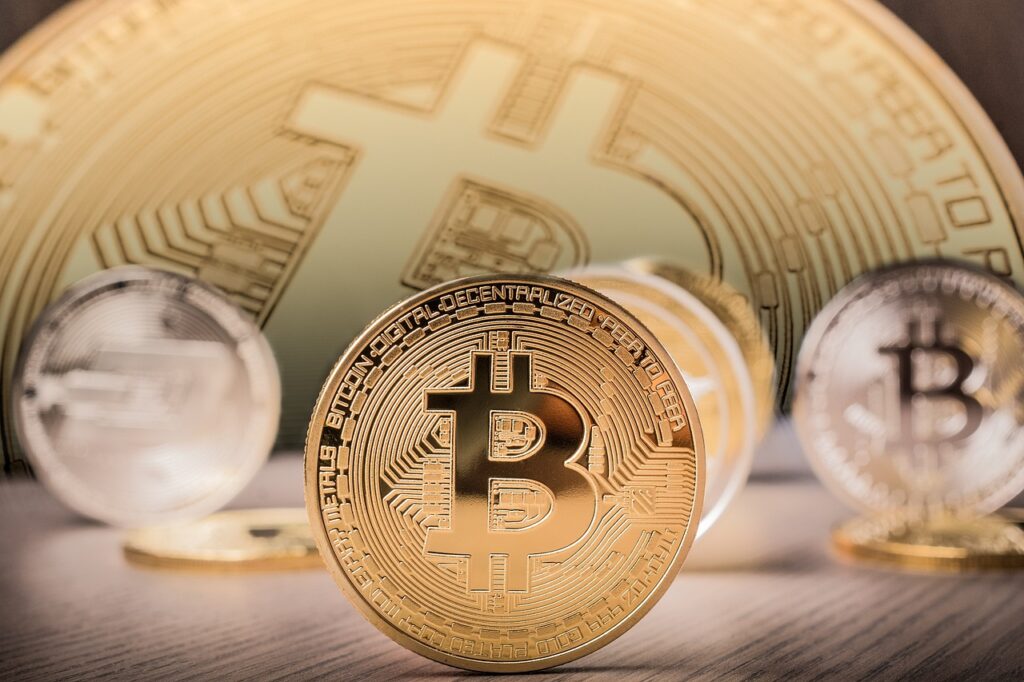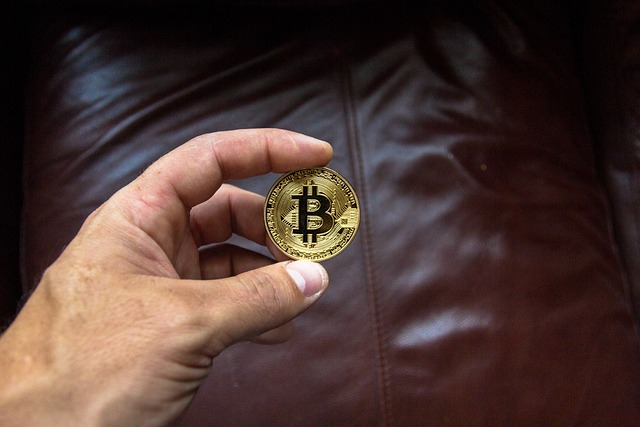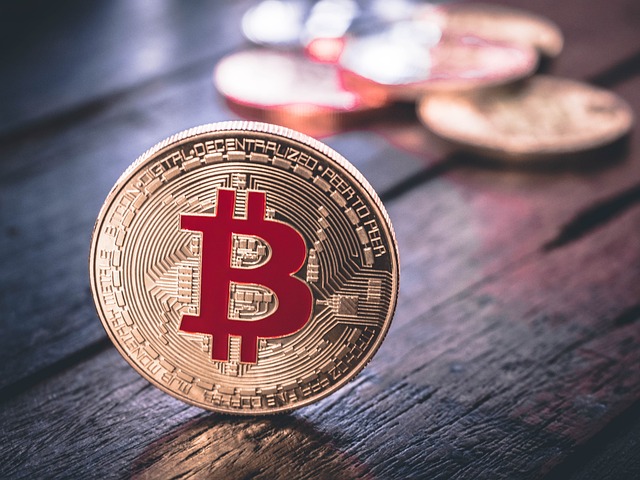DeFi Investment Risks: Protecting Your Portfolio
DeFi Investment Risks: Protecting Your Portfolio

Understanding the Potential Pitfalls: Recognizing the inherent risks associated with investing in DeFi projects.
Investing in decentralized finance (DeFi) projects can be an exciting and potentially lucrative endeavor. However, it is crucial to recognize the inherent risks that come with it. One of the main challenges faced by investors is the volatile nature of the DeFi market. Market fluctuations can occur rapidly and unpredictably, impacting the value of your investments.

Another risk associated with DeFi investments is the vulnerability of smart contracts. Smart contracts are self-executing agreements written in code, and while they have inherent benefits such as transparency and efficiency, they can also be exploited by hackers if they contain vulnerabilities. There have been instances of security breaches and hacks in the past, resulting in significant financial losses for investors. Therefore, it is crucial for DeFi projects to undergo thorough audits and security assessments to minimize the potential risks associated with smart contracts.
Navigating the world of DeFi investments requires a careful assessment of the potential pitfalls that may arise. Understanding the volatility of the market and the vulnerability of smart contracts are just a few examples of the risks faced by investors. By being aware of these risks and adopting a cautious approach, individuals can better protect themselves and make informed decisions when venturing into the DeFi space.
Volatility and Market Fluctuations: Examining the unpredictable nature of the DeFi market and its potential impact on your investment.
The DeFi market is notorious for its high volatility and unpredictable nature, which can have a significant impact on your investments. Prices can surge and crash within a matter of minutes, creating substantial gains or losses for investors. This volatility is driven by a range of factors, including market sentiment, speculation, and external market events. As a result, it is crucial for investors to carefully consider their risk tolerance and investment strategy when entering the DeFi space.
The unpredictable nature of the DeFi market can be both an opportunity and a challenge. On one hand, it presents the potential for significant returns in a short period. However, it also means that investments can quickly turn sour if the market takes a downturn. Therefore, it is important to closely monitor market trends, keep updated with news and developments in the industry, and be prepared to adapt your investment strategy accordingly. Investing in DeFi requires a cautious approach and a willingness to accept a certain level of risk and volatility.
Smart Contract Vulnerabilities: Highlighting the risks associated with smart contracts and the need for thorough audits.
Smart contracts have become a fundamental element of the decentralized finance (DeFi) ecosystem, automating various processes and allowing for seamless transactions. However, they are not without their risks. One of the key vulnerabilities associated with smart contracts is the potential for bugs or coding errors. Even a small error in the code can lead to substantial financial losses or security breaches.
To mitigate these risks, thorough audits become indispensable. Auditing smart contracts ensures that they adhere to best practices and are free from vulnerabilities. It involves a detailed review of the code to identify any potential flaws or vulnerabilities that could be exploited. This process provides investors with confidence in the security and reliability of the smart contract, ultimately reducing the likelihood of financial loss or unauthorized access to funds. As the DeFi space continues to evolve, the importance of conducting thorough audits of smart contracts cannot be overstated. The protection of investors’ assets relies heavily on the reliability and security of these contracts.
Liquidity Risks: Exploring the challenges of liquidity in DeFi and the potential impact on your investment strategy.
Liquidity is a critical aspect to consider when investing in decentralized finance (DeFi) projects. The challenges of liquidity in the DeFi space can have a significant impact on your investment strategy. One of the main challenges is the liquidity pool size, which refers to the amount of funds available for trading in a specific DeFi platform.
In DeFi, liquidity is provided by users who lock their assets into smart contracts, enabling others to trade against those assets. However, since liquidity providers can withdraw their assets at any time, the liquidity pool size can fluctuate rapidly. This volatility can lead to slippage, where the price of an asset changes unfavorably during a trade. As a result, it becomes difficult to execute large transactions without impacting the market price. As an investor, it is crucial to consider the liquidity pool size and the potential impact it can have on your ability to enter or exit positions effectively.
Impermanent Loss: Understanding the concept of impermanent loss and its implications for DeFi investors.
Impermanent loss is a fundamental concept that DeFi investors should be aware of. Essentially, it refers to the potential monetary loss experienced when providing liquidity to a decentralized exchange (DEX) compared to simply holding the assets. This loss occurs due to the way prices can fluctuate on the DEX compared to the wider market. While impermanent loss is not an actual loss until the liquidity is withdrawn, it is an important consideration when participating in DeFi.
The implications of impermanent loss for DeFi investors can be significant. It is important to understand that impermanent loss is more likely to occur in volatile markets with large price swings. When investing in DeFi projects, the possibility of impermanent loss should be factored into the decision-making process. Investors need to weigh the potential benefits of earning fees and rewards by providing liquidity against the risk of experiencing losses due to impermanent loss. Therefore, it is crucial to carefully analyze the market conditions and project fundamentals before committing to providing liquidity in order to mitigate the potential impact of impermanent loss on your investment.
Scams and Fraudulent Projects: Identifying the red flags and warning signs of fraudulent DeFi projects.
Investing in the decentralized finance (DeFi) space can provide numerous opportunities for growth and profitability. However, it is crucial to be aware of the risks associated with scams and fraudulent projects that are prevalent within the industry. The decentralized nature of DeFi can often make it challenging to identify legitimate projects from fraudulent ones.

One common red flag to watch out for is a conspicuous lack of transparency. Legitimate DeFi projects typically have a transparent roadmap, clearly stating their goals and objectives. They also provide detailed information about their team members, their backgrounds, and their expertise. In contrast, fraudulent projects may have a vague roadmap or even try to hide information about their team members. This lack of transparency should raise suspicions and prompt you to conduct more thorough research before investing your hard-earned funds. Additionally, be cautious of projects that promise unrealistic returns or use exaggerated marketing tactics to lure investors. If something sounds too good to be true, it probably is.
Regulatory Risks: Discussing the potential regulatory challenges and uncertainties facing the DeFi space.
The rapidly evolving landscape of decentralized finance (DeFi) has brought both excitement and concern to the financial industry. While DeFi provides new opportunities for investors, it also raises potential regulatory challenges and uncertainties. As governments and regulatory bodies strive to understand and adapt to this emerging field, there is a growing debate on how to effectively regulate DeFi projects.
One of the main regulatory challenges facing the DeFi space is the lack of clear guidelines and frameworks. Traditional financial systems are regulated by established institutions that provide oversight and ensure compliance. However, in the decentralized world of DeFi, there is no centralized authority to govern and enforce regulations. This creates uncertainty for both investors and regulators, as they grapple with determining the appropriate level of oversight without stifling innovation. The decentralized nature of DeFi also presents challenges in terms of jurisdictional boundaries, making it difficult for regulators to effectively address risk factors and protect investors.
• Lack of clear guidelines and frameworks
• No centralized authority to govern and enforce regulations
• Uncertainty for investors and regulators in determining the appropriate level of oversight without stifling innovation
• Challenges in terms of jurisdictional boundaries, making it difficult for regulators to effectively address risk factors and protect investors.
Platform Security: Evaluating the security measures implemented by DeFi platforms and their impact on your investment safety.
When considering investing in DeFi platforms, one crucial aspect to evaluate is the security measures implemented by these platforms. The level of security can greatly impact the safety of your investment. It is essential to understand how the platform safeguards your funds and protects your personal information.
DeFi platforms employ various security measures to ensure the safety of their users’ assets. These measures may include multi-factor authentication, encryption protocols, and cold storage for funds. Additionally, reputable platforms conduct regular security audits and employ bug bounty programs to identify and fix any vulnerabilities. By prioritizing the security of their users’ assets, reputable DeFi platforms help to mitigate the risk of hacking or fraudulent activities, providing investors with peace of mind. However, it is still essential for investors to remain vigilant and ensure they only entrust their funds to platforms with a proven track record of security and reliability.
Centralized Points of Failure: Examining the risks associated with centralized components in DeFi projects.
When investing in decentralized finance (DeFi) projects, it is important to understand the potential risks associated with centralized components. While DeFi aims to eliminate the need for intermediaries and create a trustless financial system, some projects still rely on centralized elements that can act as single points of failure. These centralized components, such as oracles or custody services, can become vulnerable to attacks, hacks, or even just technical issues, which can undermine the entire DeFi ecosystem.
One of the primary concerns with centralized points of failure in DeFi projects is the increased likelihood of security breaches. Since these components consolidate control in the hands of a few entities, any compromise in their security protocols can have far-reaching consequences. For example, if an oracle providing external data to a DeFi project is compromised, it can potentially lead to incorrect, manipulated, or delayed information being used in smart contracts. This can result in financial losses for investors and the disruption of the overall DeFi ecosystem. Therefore, it is crucial for investors to thoroughly evaluate the centralization risks associated with a project before committing their funds.
Diversification: Exploring the importance of diversifying your DeFi investment portfolio to mitigate risks.
When investing in the decentralized finance (DeFi) space, diversification can play a crucial role in mitigating risks. Diversifying your DeFi investment portfolio means spreading your investments across different projects and tokens, rather than putting all your eggs in one basket. This is important because it allows you to minimize the potential impact of any single project or token experiencing negative outcomes.
By diversifying, you are essentially hedging your bets and reducing your exposure to potential losses. Different DeFi projects and tokens have varying levels of risk, so by investing in a variety of them, you can balance out the overall risk in your portfolio. This means that if one project fails or experiences a significant downturn, the positive performance of your other investments can help offset those losses. Diversification provides a way to protect yourself against the potential pitfalls that may arise in the rapidly evolving DeFi ecosystem.
What are some of the risks associated with investing in DeFi projects?
Investing in DeFi projects comes with inherent risks such as volatility, smart contract vulnerabilities, liquidity risks, impermanent loss, scams and fraudulent projects, regulatory risks, platform security, and centralized points of failure.
How does market volatility affect my DeFi investments?
The DeFi market is known for its unpredictable nature and frequent fluctuations. These market fluctuations can impact the value of your investments, potentially leading to losses or gains.
What are smart contract vulnerabilities and why are they important to consider?
Smart contract vulnerabilities refer to weaknesses or flaws in the code of a DeFi project’s smart contract. These vulnerabilities can be exploited by malicious actors, resulting in the loss of funds. It is crucial to ensure thorough audits of smart contracts to minimize these risks.
What challenges does liquidity pose in DeFi and how does it affect my investment strategy?
Liquidity risks in DeFi projects can make it difficult to buy or sell assets at desired prices. This lack of liquidity can impact your investment strategy, potentially limiting your ability to execute trades or exit positions efficiently.
What is impermanent loss and why should DeFi investors be aware of it?
Impermanent loss occurs when the value of assets in a liquidity pool changes relative to holding them in a non-pool scenario. DeFi investors should be aware of this concept as it can result in a temporary reduction in overall investment value.
How can I identify fraudulent DeFi projects and avoid scams?
Look out for red flags such as unrealistic promises, lack of transparency, unverified team members, and suspicious token distribution mechanisms. Always conduct thorough research and due diligence before investing in any DeFi project.
What are the potential regulatory challenges facing the DeFi space?
The DeFi space is currently evolving, and regulatory frameworks are still being developed. There is uncertainty regarding how governments and regulatory bodies will approach and regulate DeFi projects, which may lead to future challenges and changes.
How important is platform security when investing in DeFi projects?
Platform security is crucial in protecting your investments. It’s essential to evaluate the security measures implemented by DeFi platforms, such as multi-factor authentication, code audits, and insurance coverage, to minimize the risk of hacks or theft.
What are the risks associated with centralized components in DeFi projects?
Centralized points of failure in DeFi projects refer to components that rely on centralized entities or infrastructure. These components can introduce vulnerabilities and counteract the decentralization aspect of DeFi, potentially compromising the security and integrity of your investments.
Why is diversification important in my DeFi investment portfolio?
Diversification is essential in mitigating risks in your DeFi investment portfolio.

Todays Featured Product:
Buy, exchange and grow your crypto securely with a Ledger hardware wallet, combined with the Ledger Live app. It’s never been easier to keep your crypto safe and accessible. Buy direct from Ledger.com and get todays Special Offers Here.




